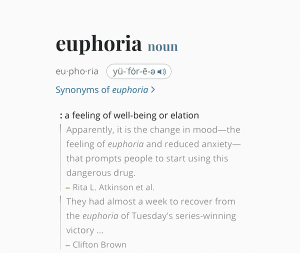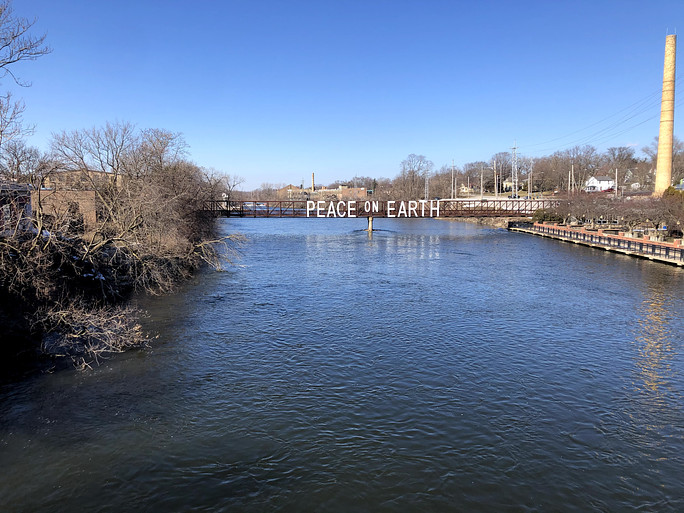Although I do not fully understand the calming effects water has on me, I know I am not the only one. People, animals, and plants gravitate to bodies of water. Unfortunately, this tranquility and peace is destroyed by the garbage floating in it. Despite litter being a significant source of pollution, other forms of pollution, like agriculture, and urban and industrial pollution, also contribute to the contamination of vital waterways. Due to the significant contamination, people are unable to swim in, drink, or fish from these waterways.
Our local communities are heavily dependent on the Fox, DuPage, and Des Plaines rivers. However, these rivers have become the dumping ground for the farming industry, manufacturing facilities, urban housing, and human waste. Despite the Clean Water Act of 1972, significant work needs to be done by individuals to improve the quality of the rivers.
Rivers enhance our livelihood; they ensure that local ecosystems are taken care of by providing homes for animals and insects that rely on them. “Rivers provide recreation such as kayaking, a water source for people to drink from, and they also function as critical ecosystems. There are various organisms, such as animals and plants, that thrive in rivers,” AP Environmental Science teacher, Keil Smith said. Smith also believes rivers can provide a sense of community by offering various recreational activities.
Rivers provide recreation such as kayaking, a water source for people to drink from, and they also function as critical ecosystems. There are various organisms, such as animals and plants, that thrive in rivers.
— Kiel Smith, AP Environmental Science teacher
William Collins, a long-time resident of Naperville, talks about the importance of rivers, citing his experience where “one morning, [he] was running along the DuPage river, and a deer came along and was running right by [his] side.”
Joey Lewsader, a local fisherman, argues that clean rivers have a distinct aesthetic quality that should not be overlooked. He believes that it is necessary to maintain clean rivers for the benefit of the community.
“People want to live cleanly and sanitarily. [Why?] Because, I mean, if you can swim, you can fish. You can do all sorts of water activities in a clean, nice water area, but polluted water turns people away from home, so no one wants to see dirt or will not see dirt, just trash or gross colored water, and nobody wants to just step on like a soda can while they’re trying to swim,” Lewsader said.
Even though people understand the importance of clean water, they are surrounded by rivers that have been neglected and destroyed by pollution. In the greater Chicago area, there exist three rivers that have been degraded by these influences.
The DuPage River is an important but small stream in the western suburbs of Chicago. The river helped establish Naperville by providing fresh water which helped farms on and near the river and jobs from local mills. Despite its contributions to the community, the DuPage River became a target for illegal dumping and waste disposal. This pollution led the river to become prone to algae blooms, and chemical and garbage pollution. Many locals believe that their rivers are relatively clean, but this could not be farther from the truth.
The Fox River is an important river for Northern Illinois and southern Wisconsin; it cuts across the western part of the Chicagoland and Milwaukee areas, passing through multiple towns (including Aurora, Waukesha, St. Charles, Geneva, etc.). Despite its significance, the Fox River faces troubles like agricultural, urban runoff and industrial pollution. These issues led to the Fox River being labeled as one of the most endangered rivers in America in 1999.
The Des Plaines River is a major river in the Chicago area; it starts off as a small stream in southern Wisconsin and eventually joins other rivers to create the Illinois River. In previous centuries, this transformed the Chicago area into an economic powerhouse. Des Plaines’s system of canals earned it the nickname ‘Pollution Highway’ as it facilitates the flow of pollution.
This has allowed pollution, such as industrial waste, urban runoff, animal waste and agricultural runoff, created in the Chicago area to pollute other rivers all the way to the Gulf of Mexico. Even if this has been an economic boon for Chicago and its surroundings, the canal that connects the Des Plaines and the Chicago rivers has caused irreversible environmental damage to these rivers and the cities downstream.
River pollution occurs when chemicals and/or microorganisms contaminate water bodies, leading to degraded water quality. This can have a drastic effect on human health, the environment and the possibilities for recreation.
Humans can harm the environment through careless actions like littering in water bodies, neglecting proper waste disposal practices and engaging in illegal dumping activities. According to Texas Disposal, 60% of water pollution is attributed to littering and most of it is deliberate actions.
Human health is directly impacted by river pollution because polluted water can contain harmful bacteria, viruses and toxins, posing a risk to humans through ingestion or contact with contaminated water.
To prosper, healthy ecosystems depend on a complex network of animals, plants, bacteria and fungi; they all interact directly or indirectly among themselves. Harm to any of these organisms can create a chain reaction endangering entire aquatic environments. (activesutainability.com)
Rivers get polluted through the process of runoff. Runoff occurs when precipitation is not absorbed into the ground, simply flowing over land. Wastewater is discharged into our waterways. There are three different types of runoff:
Agriculture runoff is when fertilizers, pesticides, and animal waste seep into our waterways. This excess of nutrients and toxic chemicals can then concentrate in waterways, causing algae blooms and ‘dead zones’ where underwater life is unable to survive. The algae overgrowth can be toxic to fish and people.
According to the EPA, Urban runoff is when “stormwater picks up and deposits harmful pollutants like trash, chemicals, and dirt or sediment into streams, lakes, and groundwater. Construction sites, lawns, improperly stored hazardous wastes, and illegal dumping are all potential sources of stormwater pollutants.”
Industrial Pollution is when factories dump chemicals such as PFAs (known as forever chemicals), minerals, heavy metals, raw sewage and radioactive materials into our rivers. This causes illnesses in humans, changes in the behavior of fish, and other negative impacts. The EPA often fails to regulate this behavior.
Our rivers are much cleaner now thanks to the EPA’s establishment and the implementation of the Clean Water Act. These actions have effectively “prevented 700 billion pounds of pollutants from entering our waters annually, reduced wetland loss, and increased the number of waters suitable for fishing and swimming, including the Fox River and the Des Plaines River. Levels of metals, like lead, in our rivers have declined dramatically. Ultimately, the cost to clean our drinking water is lower because the entire system is healthier,” (nwf.org).
Along with the work that the EPA and Clean Water Act have done, local organizations, such as the River Prairie Group, Friends of the Fox River and the Eco Club, have also played a significant role in the work that has been done, resulting in the recovery of many of our local rivers.
However, there are still aspects of river pollution that need to be addressed; for example, industrial pollution hotspots are still a problem, and we need to enforce strict regulations on agricultural runoff to reduce pollution risks. We must prioritize the well-being of rivers in our community because the effects rivers have on our well-being are as dramatic as they are unnoticed.
“To reduce river pollution, use less single-use plastic like water bottles and shopping bags to prevent the formation of microplastics. Consider volunteering for organizations like Friends of the Fox River to participate in river cleanups. Additionally, conserve water and support political candidates who prioritize environmental issues for meaningful change,” Smith said.
To get involved with maintaining the health of local rivers, visit some of the following links:








Meghan • May 24, 2024 at 12:55 am
Great article! Super informative and beautifully written. Thank you for bringing awareness to this issue, I had no idea! Also appreciate you including the ways to get involved and help out!
Erin • May 17, 2024 at 11:51 am
Never knew about our local rivers till now!